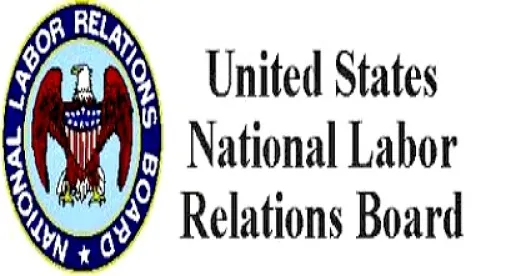On Oct. 26, 2023, the National Labor Relations Board (NLRB) announced its Final Rule on the joint-employer standard under the National Labor Relations Act (NLRA), which will take effect Dec. 26, 2023, and apply to cases filed after the effective date.
Under the new standard, two or more entities may be considered joint employers if they share or codetermine one or more of the employees’ essential terms and conditions of employment. In practice, this rule will be implicated where one entity is the actual employer of the employees (such as a franchisee or an employer using a staffing agency) and the other entity is alleged to be a joint employer under this new test. The rule takes an expansive view of “essential” terms of conditions, which are defined as: (1) wages, benefits, and other compensation; (2) hours of work and scheduling; (3) the assignment of duties to be performed; (4) the supervision of the performance of duties; (5) work rules and directions governing the manner, means, and methods of the performance of duties and the grounds for discipline; (6) the tenure of employment, including hiring and discharge; and (7) working conditions related to the safety and health of employees. Under the rule, this is an exhaustive list, not an illustrative one.
The new standard overrules the current joint-employment test and effectively returns to the controversial Browning-Ferris test from 2015. In contrast to the current standard—which requires “substantial direct and immediate control” over a more limited set of essential terms, the new rule will find joint-employment relationships regardless of whether control is exercised, and without regard to whether any such exercise of control is direct or indirect. Focus on “indirect control” may cause concern for employers who utilize third parties to expand their work forces.
Under the new rule, (1) possessing the authority to control one or more essential terms and conditions of employment is sufficient to establish status as a joint employer regardless of whether the control is exercised; and (2) exercising the power to control indirectly (including through an intermediary) one or more essential terms and conditions of employment is sufficient to establish status as a joint employer, regardless of whether the control is exercised directly. Practically speaking, this means that if—for example—a franchisor maintains or even reserves authority over any of the seven essential terms and conditions of employment, even if it never exercises that authority, or only exercises it indirectly, the franchisor may still be deemed a joint employer. While the new rule may be felt particularly acutely in the franchisor/franchisee context or where employers “flex” their work forces, it applies to all industries subject to the NLRA—virtually all private-sector employers in the United States. And, as with all issues arising under the NLRA, the rule applies equally to non-unionized workforces.
The new rule represents an expansion of the joint-employer standard and has particular implications for employers who use staffing agencies, third party employers, and franchisors, as the rule will make it easier for workers in those areas to allege (or at least advance a colorable claim) that the franchisor, staffing agency, or other third party jointly employs them. Accordingly, companies who partner with other entities in these and other business arrangements should consider review and possible revision of their operating and other key documents and contracts.
For example, franchisors may wish to review their franchise agreements, franchise disclosure documents, operations manuals, and any other documents and materials that relate to their relationship with their franchisees (and their franchisees’ employees) and/or are distributed to franchisees and/or their employees, including training materials, to identify language that might support a finding of joint employment. Some particular areas for review may include required store hours/shifts; required positions for store locations beyond a general manager and job descriptions for such other roles; interactions with franchisee employees by regional managers during site visits; involvement in hiring franchisee employees (including resources provided, such as sample interview scripts, offers to participate in interviews, and required approval for franchisee hires); guidance regarding salary and wages and brand/quality standards that bleed into controlling the manner/means of performing job duties and/or health or safety standards; as well as the reservation of rights language in agreements.
Other types of impacted businesses, such as staffing agencies, specialized placement firms, and virtually any other business that contracts with another business as either the purchaser or supplier of labor should consider a similar undertaking.
The NLRB’s joint employer doctrine has been controversial, particularly over the past decade, and we may hear more from the agency or the courts on joint employment in the future.






 />i
/>i

